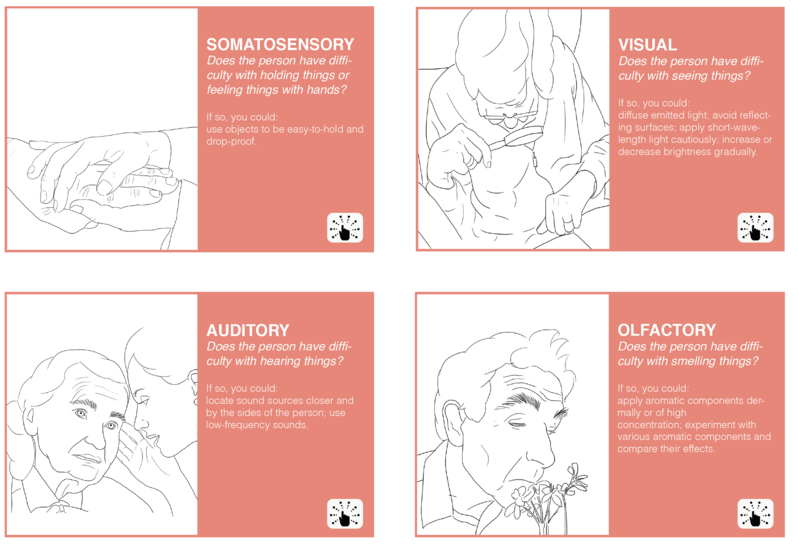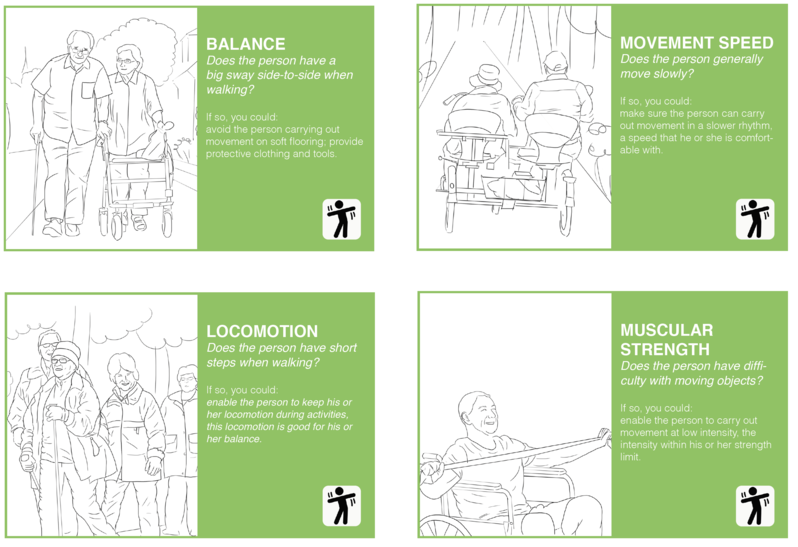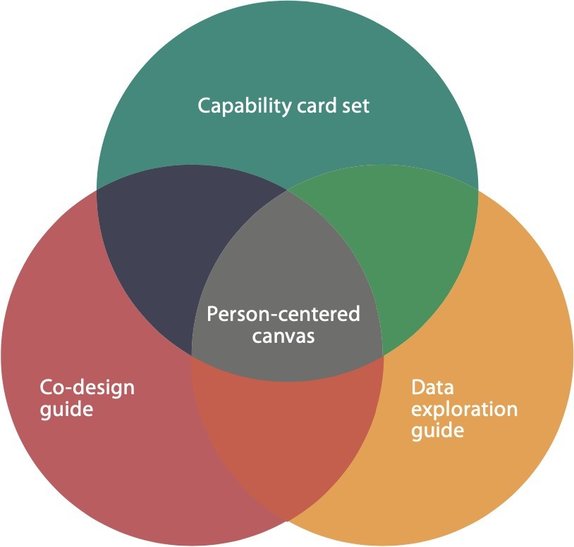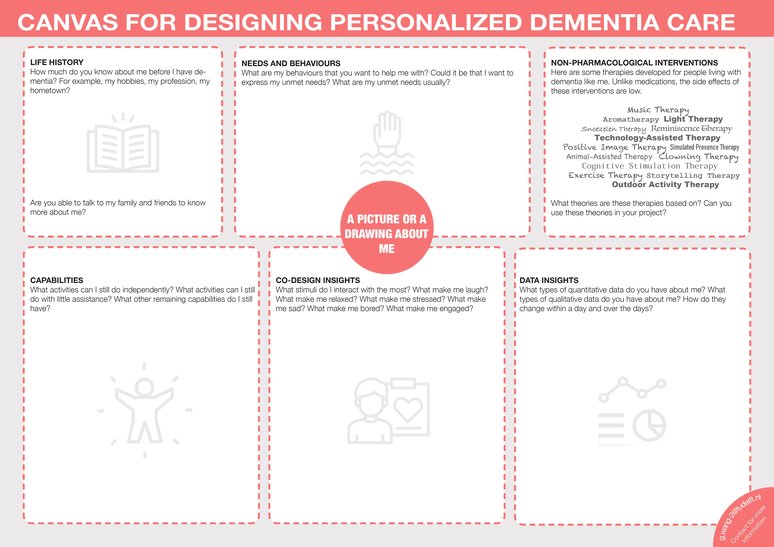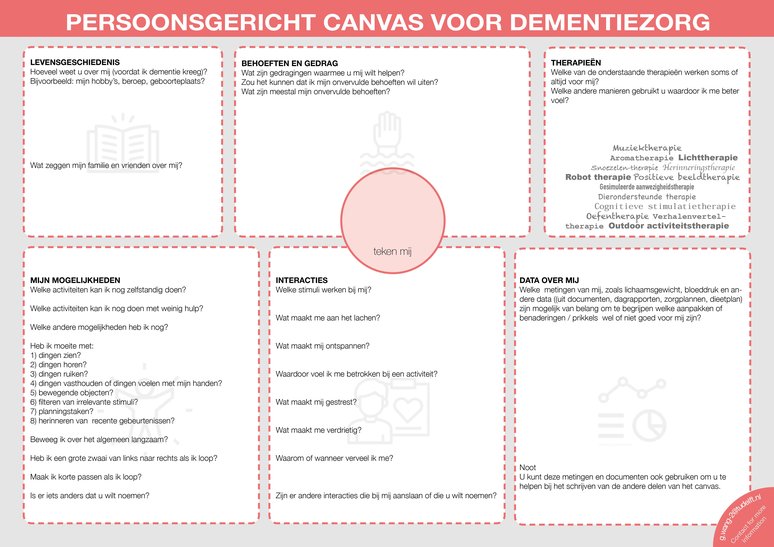Designing for personalised dementia care
Approaches, Recommendations and Tools from Design
Personalizing dementia care with a novel concept consisting of a tool kit aimed at managing behaviour and psychological symptoms of dementia (BPSD).

Researcher:
Gubing Wang
Design methodologies:
- data-enabled design
- co-design
- observations
- interview
Project type: PhD Thesis
Domain: Design in healthcare
Design Level: Systemic design
Outcome: Website (approach, recommendation, and tools)
2021
Challenge
The challenge was to support designers and carers to quickly identify a personalized care approach for each Person with Dementia in a structured way. behaviour and psychological symptoms of dementia (BPSD) offers a structure to identify the needs and emotions of people with dementia. It also offers a handle for designers and carers to design and care for them, which in turn helps with the management of BPSD. However, there is no tool available to support designers and carers to do so.
The challenge was to support designers and carers to quickly identify a personalized care approach for each PwD in a structured way.
Gubing Wang
Result
The toolkit consists of four parts: 1. Capability card set: to help users identify the remaining capabilities of people with dementia. 2. Co-design guide: to help users develop empathy and to uncover the needs of people with dementia. 3. Data exploration guide: to help the users to generate more insights about people with dementia by combining quantitative data and qualitative data. 4. The person-centered canvas to help users organize and analyze the insights gathered from using the above-mentioned three tools to understand the causes of one's BPSD, and to identify a personalized care approach for each person with dementia.

Gubing Wang
Armagan Albayrak
- +31 (0)15 27 81932
- A.Albayrak@tudelft.nl
-
Room C-3-080

Tischa van der Cammen
- +31 (0)15 27 83021
- t.j.m.vandercammen@tudelft.nl
- Publications
-
Room C-3-180
"Autonomous ageing"
Funding:





